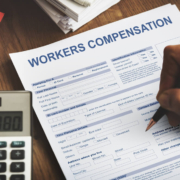Wait for hearing for applicants appealing denied SSD claims
When individuals in West Virginia and other states across the country are unable to work because of an injury, illness or disability, this can be very problematic and life impacting for the individual. While Social Security disability benefits are available to those suffering from serious disabilities, those filing for benefits may not receive them following their initial claim. In fact, many are initially denied and will have to appeal this decision if they seek to collect SSD benefits.
A denied claim requires an applicant to go through the appeals process; however, this process is not always quick and often causes an applicant to make numerous appeals until they reach a favorable decisions or run out of options. However, due to a substantial drop in the Social Security Administration’s staffing, this has caused a major backlog in those attempting to appeal a denied claim.
In fact, recent data suggests that 1.1 million applicants are waiting an average 543 days for the person’s appeal at the hearing level. This wait is related to the staffing at the SSA dropping. According to the Center on Budget and Policy Priorities, there was a 14 percent staffing drop since 2010. That amounts to a loss of 1,989 workers who are no longer able to process disability claims.
This staffing shortage is a growing problem, especially for those appealing their denied claims. In fact, there are also staffing challenges in the appeals stage due to a shortage of administrative law judges available to hear disability claims. Due to these shortages, those applying for SSDI can roughly expect a 30-month wait to just receive a hearing.
While the SSA has released a plan to address these issues, it is projected that the problems of backlogs will not be resolved until the summer of 2020. Whether people are waiting for an appeal, waiting to hear a decision or are working on a SSD application, it is important to take the time to be fully aware of their rights and options. This will help progress the process when the time comes to act on a decision made by the SSA.




